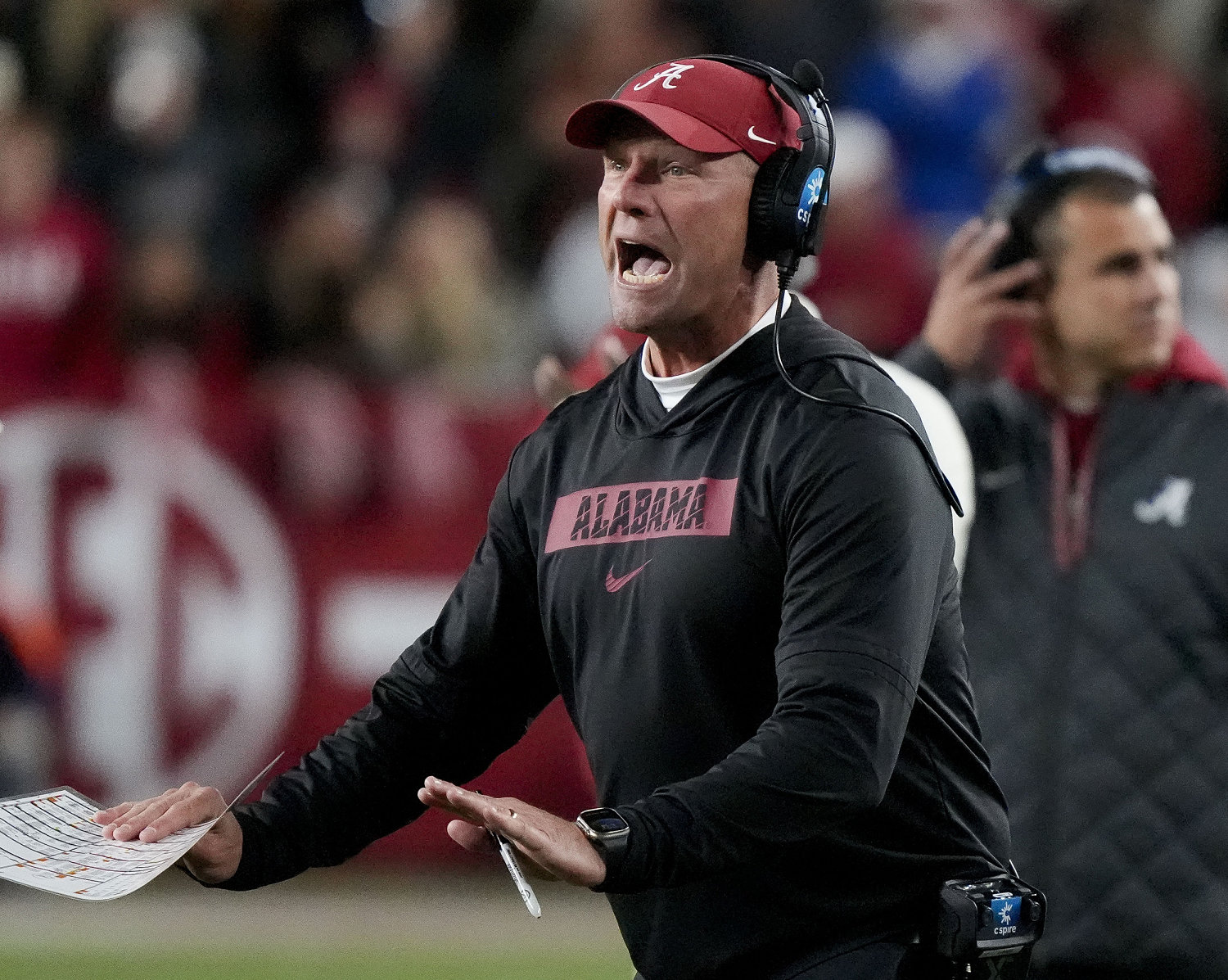The College Football Playoff selection committee avoided controversy and created a bracket that is as equitable as any of us could have hoped for, thanks to a 56-yard field goal that won the game as time ran out in the ACC title game.
Do I need to pick nits? I do, of course. Fortunately, however, rather than penalizing SMU for losing, the committee gave them a trophy for reaching their conference championship game. The committee’s decision to award a team that lost three games and missed its conference championship game over another so-called Power 4 team with ten victories looked like a horrible precedent to set, as I argued late last week. After Clemson’s clutch kick, the argument was irrelevant.
But the question remains: Would the committee have been so kind to SMU if it hadn’t rallied to tie the game after falling behind 17 points? I’m curious as to why the committee chair acknowledged that they discussed SMU’s defeats to ranked teams against Alabama’s losses to unranked teams. The same is true of nearly selecting a nine-win SEC squad over an 11-win ACC team. For supporters of football programs outside of the two biggest conferences, it can be a little upsetting.
The unintended consequence of selecting Alabama over SMU would have been to completely stop the conference championship games. If the danger isn’t worth the return, why play in them? Thankfully, we were able to avoid that situation.
I want to know if the CFP is just intended to reward the wealthy and influential in the sport. I don’t request that it troll. In order to attract interest in the game outside of its typical dominant cities, every other league or organization that has extended its playoffs has done so. Take a look at how MLB’s wild card expansion has increased local TV ratings for more clubs that have a chance to qualify for the postseason.
However, the evidence thus far suggests that this committee will continue to bolster the SEC’s and the Big Ten’s authority and reputation. Increasing the number of teams from four to twelve did not increase college football’s overall fan base.
How often did you hear about the renowned SEC schedule if you watched the selection show? Although I am well aware that it is challenging, every big conference’s road conference games are also challenging. Consider performing at night in Morgantown, West Virginia, Blacksburg, Virginia, or Louisville, Kentucky. November at Boston College? When cold, its turf turns to concrete. One of the greatest home-field advantages in the entire sport belongs to Utah. Going undetected is challenging at conferences other than the SEC.
Here s what is true: The SEC football programs spend the most money, and they would never want to believe they aren t the best given how much each program does spend. Additionally, their quantity of first-round NFL draft selections is self-evident. However, having the top players does not necessarily translate into having the best squad. That s the beauty of football you can out-scheme and out-coach a faster and more physical team on any given Saturday.
This format will survive one more year for the 2025 season, and then the CFP folks are going to decide whether to keep it as is, shrink it (unlikely) or expand it (highly likely) starting with the 2026 season. More games is more money for everyone involved.
If they expand the playoff to 16, the big issue will be conference guarantees. Both the SEC and the Big Ten will want four slots each. That s obviously not fair, but those two conferences have leverage, and I sure hope they go with merit. If it were fair, then it should be earned. Have the conferences ranked by strength of record at the end of the season and award 12 of the 16 slots based on those rankings.
For instance, under my plan, here s what the 16-team playoff most likely would have looked like: You d have the SEC earning a minimum of four slots (Georgia, Texas, Tennessee and Alabama), the Big Ten three slots (Oregon, Penn State and Ohio State), the ACC two slots (Clemson and SMU), the Big 12 one slot (Arizona State), the Mountain West one slot (Boise State) and the AAC one slot (Army).
That would leave four at-large bids, which, based on rankings, would be Notre Dame, Indiana, Miami and Ole Miss. I m guessing the debate between Ole Miss and South Carolina would have been heated, and perhaps with a closer focus, the Gamecocks would have gotten the nod.
Here s what the 16-team playoff would feature in the first round:
- 1. Oregon vs. 16. Army
- 2. Georgia vs. 15. Clemson
- 3. Texas vs. 14. Ole Miss
- 4. Penn State vs. 13. Miami
- 5. Notre Dame vs. 12. Arizona State
- 6. Ohio State vs. 11. Alabama
- 7. Tennessee vs. 10. SMU
- 8. Indiana vs. 9. Boise State
When you see how fantastic this slate looks at 16 teams, it s easy to see that this is coming very soon. As long as the conference guarantees are based on merit, a 16-team playoff might finally end a majority of the griping we ve dealt with for decades.
CORRECTION(Dec. 9, 2024, 11:40 p.m. ET): A previous version of this article misstated Blacksburg s state. It is in Virginia, not West Virginia.
Note: Every piece of content is rigorously reviewed by our team of experienced writers and editors to ensure its accuracy. Our writers use credible sources and adhere to strict fact-checking protocols to verify all claims and data before publication. If an error is identified, we promptly correct it and strive for transparency in all updates, feel free to reach out to us via email. We appreciate your trust and support!






